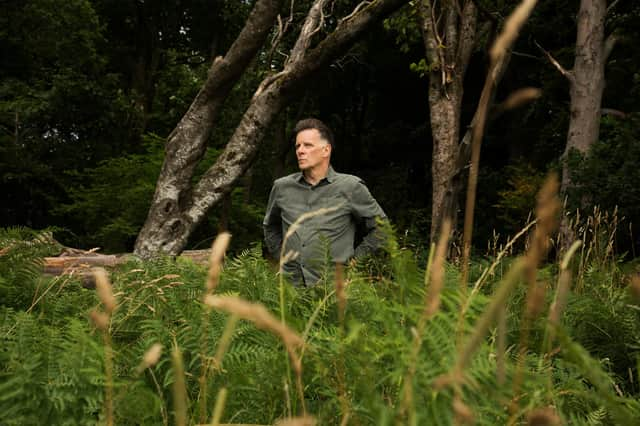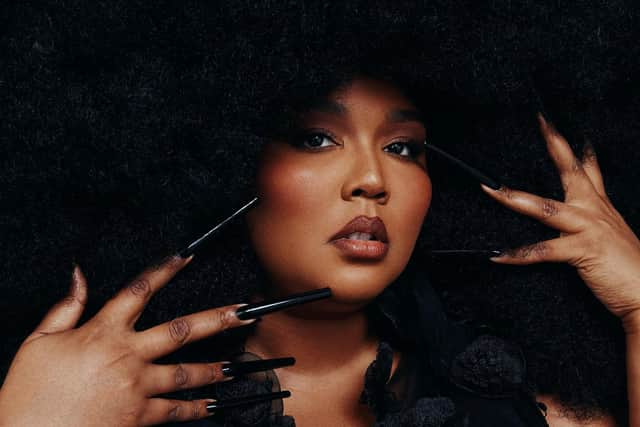Album reviews: Ricky Ross | Lizzo | Gilbert O’Sullivan | David McClymont


Ricky Ross: Short Stories Vol. 2 (Cooking Vinyl) ***
Lizzo: Special (Nice Life/Atlantic) ****
Gilbert O’Sullivan: Driven (BMG) ***
David McClymont: Centuries: A Retrospective (Past Night From Glasgow) ***
As a cherished writer of some of Scotland’s favourite musical tales, Ricky Ross could probably run and run with his Short Stories series of intimate, observational songs mixed with stripped back renditions of Deacon Blue favourites. But for now here we are, five years on from the first edition, with Vol.2, recorded at home with contributions from DB bandmates Lorraine McIntosh and Gregor Philp, and gently dusted with strings and brass.
Advertisement
Hide AdAdvertisement
Hide AdOpening track New World is typical of Ross’s romantic, lyrical piano balladry, straight from his mouth to your ears with only the most sensitive of string embellishments.
That piano is purposefully pounded like the pavement on Still Walking, as Ross takes in various views and reminiscences, but there is a gentler melancholic Tom Waitsian touch to All Dressed Up and The Unpath with its mournful brass backdrop and a flavour of Ross’s beloved alt.country in the guitar, mandolin and harmonies of The Foundations.
Unknown Warrior is a lovely tribute to fallen soldiers, written for Armistice Day and performed here with a crack in his voice, not to mention some peeling high notes.
Ross also revisits a handful of Deacon Blue tracks as bare ballads, including Bethlehem’s Gate from Whatever You Say, Say Nothing, I Am Born from comeback album Homesick and a version of Your Swaying Arms which is all spartan but eloquent sentiment, starring Kelvin Way as the road to heaven.
While Ross opts for understatement, the magnificent rapper, singer and flautist Lizzo is as in-your-face as ever on her fourth album Special, demanding “Did you miss me? …I know you seen me comin’ cos I’m big” on witty opening gambit The Sign.
Lizzo has some serious points to make about acceptance, body positivity and equality, which she communicates with disarming attitude, but mostly Special is focussed on celebration and support, from the Beastie Boys-sampling R&B shoutout of Grrrls to the feelgood funk of About Damn Time with its dash of disco and Diana Ross nod (“I’m coming out tonight”).


There is a lot in the mix, from big hitter producers Max Martin and Mark Ronson to retro references such as the aerobic workout-in-waiting that is 2 Be Loved (Am I Ready), complete with cheeky organ synth hook, slick call and response backing vocals and key change, to the double meaning of streamlined disco pop track Everybody’s Gay and the smart, speeded-up sampling on Coldplay, a light, trippy spiritual soul paean to love, romance and listening to said band on a starry night. But Lizzo galvanises all with her infectious force of personality and party tunes.
Advertisement
Hide AdAdvertisement
Hide AdGilbert O’Sullivan doesn’t have to conjure up the Seventies in his music – by the sound of his latest time capsule of an album, he still lives there with the jaunty piano pop of yore flowing out of him on Blue Anchor Bay and Let Me Know and a backward glance down Tin Pan Alley on the unashamedly old-fashioned, string-soaked ballad If Only Love Had Ears.
KT Tunstall and Mick Hucknall make perky and wistful cameos respectively. But however Driven he may feel, O’Sullivan has run out of fuel by the time he reaches the lacklustre Hey Man.
Former Orange Juice bassist David McClymont has long swapped Glasgow’s leafy west end for the outer edges of Melbourne, Australia. Centuries is a (double vinyl) compilation of diverse tracks from a string of self-released albums and EPs which fuse uncluttered atmospherics, indigenous vocal samples and the chirrup and ribbit of wildlife with skinny funk guitar, brass, percussion and his own whispery drawl like a lo-fi take on Peter Gabriel’s slick world fusion.


CLASSICAL
Emilie Mayer: Symphonies Nos 6 & 3 (hänssler classic) ****
Not only did Emilie Meyer compose eight symphonies, plentiful string quartets, piano trios, orchestral overtures and a host of instrumental sonatas, but she did so as a single woman in 19th century Germany during a 71-year lifespan that ended with her death in 1883. She was clearly a formidable lady in a man’s world, capable of accessing keynote performances from major European orchestras. As the two symphonies presented here – Nos 3 & 6, both premiered in the 1850s – illustrate, she had a profound technique and a taste for the prevailing legacies of Schubert and Beethoven, and the current trends of Schumann and Mendelssohn. The latter pair are strongly reflected in the prominent chorale-like motif in the Marche funebre of No 6. These are joyous and lyrical performances by the Philharmonisches Orchester Bremerhaven under Marc Niemann, displaying a canon that is worthier of public recognition than hitherto has been the case. Ken Walton
FOLK
Ruth Keggin & Rachel Hair: Lossan (March Hair Records) ****
Manx Gaelic, currently in a precarious state, tends to be overshadowed by its Irish Sea neighbours Alba and Éire. This fine debut album by the duo of Manx singer and cultural champion Ruth Keggin and Scots harpist Rachel Hair delivers a bright counterblast, justifying its title, which means light or flame. Right from the opening Christmas lullabies, Keggin’s singing is clear and poised over Hair’s harp, which carries the songs and intertwines with them, a fine balance maintained throughout – take Ny Kirree Fo Niaghtey, for instance, recounting a winter tragedy. Hair solos with a still, crystalline Manx air, while Keggin’s ability to tell a song with great clarity shines in her unaccompanied, if brief Arrane Saveenagh. Guests include fiddler Isla Callister on three tracks, while Adam Rhodes and Adam Brown add bouzouki and bodhrán to a purposeful trio of Manx drinking songs. Jim Gilchrist